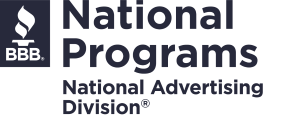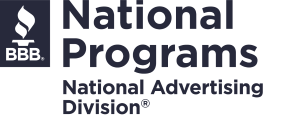Should I Get a Secured or Unsecured Loan?
iCrowdNewswire
Jun 07, 2022
If you’ve decided it’s time to take out a loan, you may wonder whether a secured or unsecured loan is the right decision. Both of these loans come with their benefits, but there are a few key differences between the two. So, it’s wise to understand how each loan works and how they’ll relate to your current finances. Let’s dive deeper into how secured and unsecured loans work so you can decide which option works for your unique situation.
How does a secured loan work?
A secured loan is a loan that requires you to provide an item of value you own as collateral, such as your house or car. This collateral can help ensure you meet the loan repayment terms. If you default on a secured loan, the lender can repossess your collateral to recoup the loss. It can be easier to qualify for higher loan amounts and lower interest rates with secured loans, since they are considered less risky to the lender.
A title loan is a great example of a secured loan. When you take out a title loan, you offer your vehicle title as collateral. You can receive a loan amount worth a percentage of your car and keep driving the vehicle as you repay the loan. If you can’t pay back a title loan, the lender can repossess your vehicle and use it to pay off the remaining debt.
How does an unsecured loan work?
Unsecured loans are loans that do not require you to provide collateral. Instead, lenders will just assess factors like your credit score, employment history, income, and current debts when deciding whether to approve you. You won’t have any assets repossessed if you default on an unsecured loan, but your credit score may take a significant hit and the lender may enter into collections for your loan. This means that it might be more difficult for you to take out other unsecured loans in the future.
One example of an unsecured loan is an installment loan. With this short-term loan, you can receive a lump sum of money that you can repay in fixed monthly payments, or installments. Repayment terms can last from several months to several years, depending on the lender and loan terms.
How to decide between a secured and unsecured loan
When deciding whether a secured and unsecured loan is right for you, it’s important to consider the pros and cons of each:
Pros and cons of secured loans
Secured loans will typically offer lower interest rates than unsecured loans and you may be able to receive a larger loan amount, since you’re providing an asset as collateral. It’s also easier to obtain a secured loan if you have a poor credit score or defaulted on a loan in the past.
But keep in mind that failing to repay a secured loan can become much riskier if the collateral is your car or house. No one wants their car repossessed or their house foreclosed, so you should be careful about falling behind on these types of payments.
Pros and cons of unsecured loans
Compared to a secured loan, an unsecured loan offers less risk if you fall behind on your payments since you don’t have to provide collateral. Still, you should strive to pay off an unsecured loan as quickly as possible so that your credit score won’t take a hit.
Since unsecured loans are not secured by collateral, some may come with stricter credit score requirements that make them tougher to qualify for. Luckily, there are many lenders that offer unsecured loans to those with poor and fair credit.
The bottom line
Both secured and unsecured loans can make sense for different borrowers and circumstances. If you want a larger loan amount and are willing to provide collateral, then a secured loan may make the most sense. But if you don’t want to use an item of value as collateral, then an unsecured loan may be the right option for you. Whichever loan you choose, make sure you understand the repayment terms. This way, you’ll be able to successfully take out a loan that can give you the financial flexibility you need.
Notice: Information provided in this article is for information purposes only. Consult your financial advisor about your financial circumstances.
Contact Information:
Name: Michael Bertini
Email: [email protected]
Job Title: Consultant
Tags:
Go Media, PR-Wirein, CE, Google News, Financial Content, ReleaseLive, IPS, Reportedtimes, Extended Distribution, iCN Internal Distribution, English




